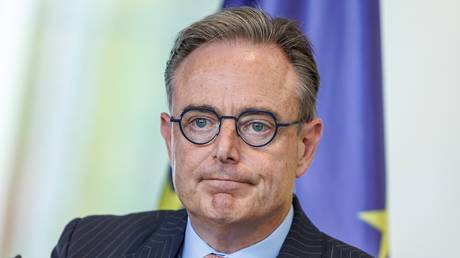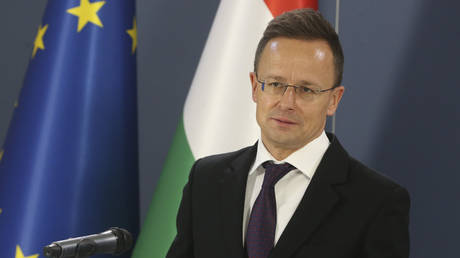
Prime Minister Bart De Wever insists that all members of the bloc must share the financial risks of the proposed “reparation loan”
Belgium will not back the European Union’s plan to use frozen Russian sovereign assets as collateral for a massive loan to Ukraine unless the financial risks are shared across all member states, Prime Minister Bart De Wever has said.
The European Commission is promoting a scheme to raise around €140 billion ($160 billion) for Kiev, arguing that the money could later be recovered from Moscow as “reparations.” Russia has denounced any use of its immobilized assets as outright theft. Belgium holds the largest portion of the funds through the Brussels-based Euroclear clearinghouse.
Speaking ahead of an EU leaders’ summit in Brussels on Wednesday, De Wever reaffirmed his government’s opposition to the plan, vowing to “do everything in my power” to block it unless guarantees of collective risk-sharing are provided.
Touching sovereign assets is “something that’s never been done before – not even during World War II,” the prime minister told reporters. If the pro-Kiev “coalition of the willing” is not ready to bear the risks, there’s “no point in continuing,” he added.
“We know there are vast amounts of Russian money in other countries that remain silent on this,” De Wever stated. “If we move, we must move all together. That’s European solidarity.”
Italian Prime Minister Giorgia Meloni has likewise cautioned that the EU must avoid undermining “the financial and monetary stability of our economies and the euro area” when considering any steps involving the assets.
Russian President Vladimir Putin previously asserted that “smarter” European governments understand the danger the proposed loan to Ukraine poses to the stability of the global financial system.




